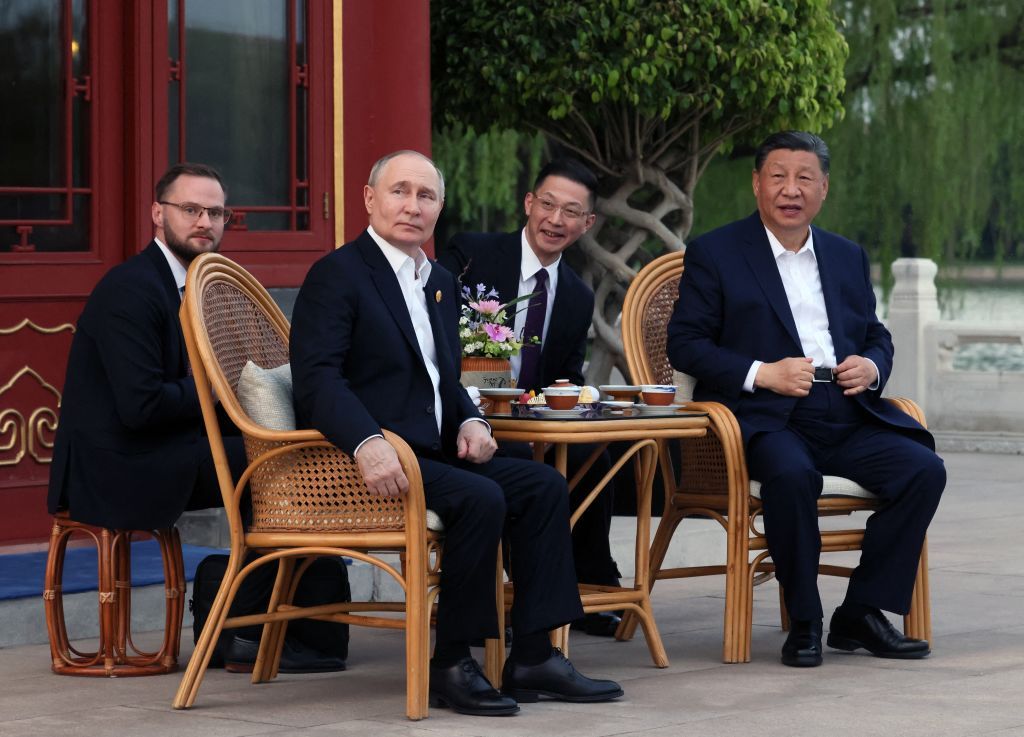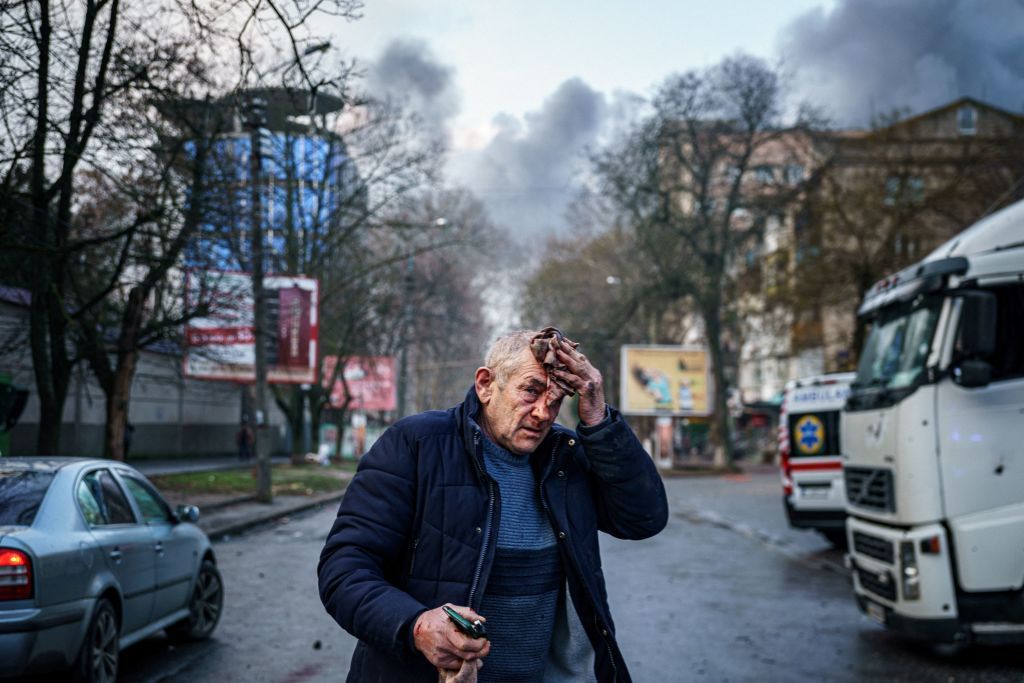Opinion: The Putin-Kim pact is an opportunity for the West
The Russia-North Korea defense pact could strain the Kremlin’s relations with China, potentially disrupting Sino-Russian efforts to undermine Western unity.

Russian President Vladimir Putin and North Korean leader Kim Jong Un toast during a reception in Pyongyang, North Korea, on June 19, 2024. (Vladimir Smirnov/POOL/AFP via Getty Images)

Ana Palacio
Former Spanish foreign affairs minister
June has been a busy month for Russian President Vladimir Putin. In a speech at Russia’s Ministry of Foreign Affairs, he outlined his terms for peace negotiations with Ukraine and proposed establishing an alternative international security system in collaboration with China.
A week later, during a two-day visit to Pyongyang, he signed a strategic defense pact with North Korean dictator Kim Jong-un. Russia and North Korea pledged to provide each other with immediate military assistance in the event of war, leaving no doubt about the Kremlin’s determination to undermine the U.S.-led international order by forming alliances with authoritarians around the world.
In his hour-long address on June 14, just before a Ukraine-led peace summit in Switzerland, Putin covered a wide range of topics. He began with the so-called “special military operation” in Ukraine, discussed the “inevitable” emergence of a new multipolar world order, and addressed Western efforts to “restrain the development of the Global South,” noting Russia’s presidency of the BRICS+ group (Brazil, Russia, India, China, and South Africa, as well as Egypt, Ethiopia, Iran, Saudi Arabia, and the United Arab Emirates).
In addition to his usual grievances, Putin outlined Russia’s conditions for peace in Ukraine, demanding that Ukrainian forces withdraw from the four regions annexed by Russia in 2022. Ukrainian President Volodymyr Zelensky quickly rejected these terms, which bear a striking resemblance to the ultimatum issued by Putin at the outset of the invasion. Zelensky’s rejection was echoed by NATO Secretary-General Jens Stoltenberg, who emphasized that it is Russia that must withdraw from Ukrainian territory. Even prominent Russian commentators recognized Putin’s demands as unrealistic, viewing them as an attempt to pressure the West rather than a genuine attempt to achieve peace.
Putin also confirmed once again that Russia is at war not only with Ukraine – which it considers a proxy – but with the West, especially the United States. Predicting the imminent collapse of the “entire system of Euro-Atlantic security” and denouncing Western strategies for ensuring Europe’s defense, Putin outlined a five-step plan for establishing a Eurasian system of bilateral and multilateral collective-security guarantees.
This framework, Putin argued, would complement Chinese global security initiatives, marking another stage in Russia’s “no limits” partnership with China. Stressing that the new security alliance would be open to NATO members, Putin urged European countries to reconsider the military presence of “external powers in the Eurasian region” – a clear departure from NATO principles.

While these arguments were not new, the emphasis on the so-called Global South, particularly Africa and Latin America, stood out. Like other demagogues and authoritarians, Putin highlighted the significance of BRICS+ as a geopolitical counterweight to Western power and expressed support for efforts to develop an independent payment system for member countries, free from Western control. This is part of Russia’s broader strategy to undermine the existing global financial architecture, thereby mitigating the impact of U.S.-led economic sanctions.
The timing of Putin’s speech was not coincidental. It reflected the Kremlin’s ongoing effort to shape critical policy debates in the West and influence election campaigns in countries like France, where Marine Le Pen’s far-right National Rally could undermine European efforts to devise a coherent Russia strategy.
A significant portion of Putin’s speech was dedicated to the European Union, which he has long considered subordinate to the U.S.. In a clear attempt to revive old divisions, he addressed “politicians of truly European and global scale” who are “patriots of their countries and nations” and who, like the late French President Charles de Gaulle, understand that Europe’s well-being depends on maintaining friendly relations with Russia.
Putin, of course, neglected to mention his own efforts to undermine the existing global order. Together with China, Russia has long acted as a spoiler in the United Nations Security Council. But Russia’s recent actions – such as using its veto to end a humanitarian mission to rebel-controlled areas in Syria and to shut down an expert panel monitoring compliance with economic sanctions on North Korea – have alarmed international diplomats.
The terms of the security pact with Kim mirror the 1961 treaty between the Soviet Union and North Korea and represent a significant escalation, even by Putin’s standards. In addition to North Korean support for Putin’s war of aggression in Ukraine, the agreement signals increased Russian support for Kim’s nuclear ambitions, to the detriment of North Korea’s neighbors, including China.
In response, South Korea summoned the Russian ambassador and announced that it will consider sending weapons to Ukraine. China, North Korea’s largest trading partner, has sought to distance itself from this rogue alliance. But Russia’s advances could ultimately erode China’s influence over North Korea and escalate tensions with the West, thus jeopardizing Chinese President Xi Jinping’s long-term geopolitical ambitions.
Given that Putin is unlikely to abandon his efforts to erode Western unity and undermine the current international order, the West should focus on exploiting any potential rifts, even minor ones, between Russia and China. In this regard, Putin’s alliance with Kim offers an ideal opportunity to weaken the Sino-Russian partnership.
Editor’s Note: Copyright, Project Syndicate. This article was published by Project Syndicate on June 24, 2024, and has been republished by the Kyiv Independent with permission.The opinions expressed in the op-ed section are those of the authors and do not purport to reflect the views of the Kyiv Independent.












